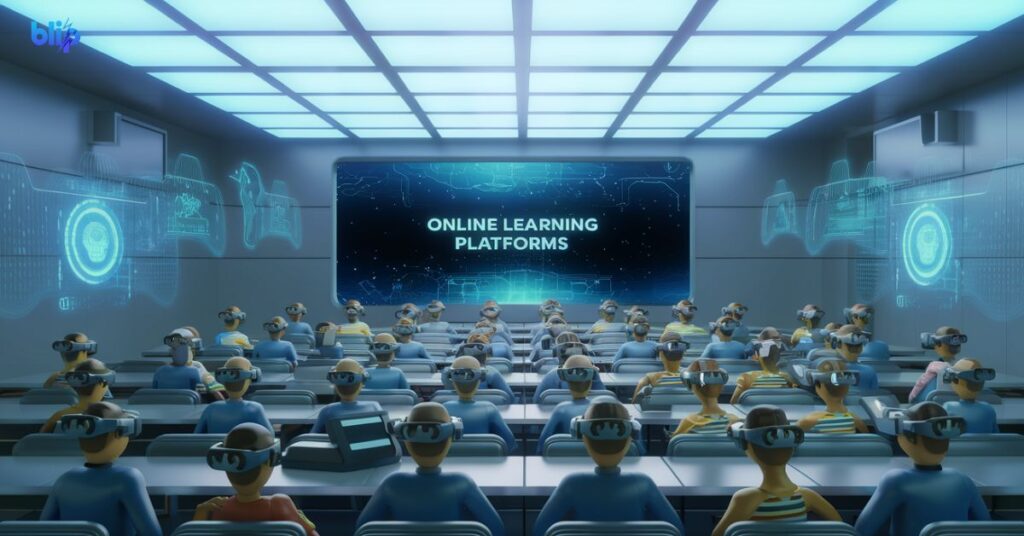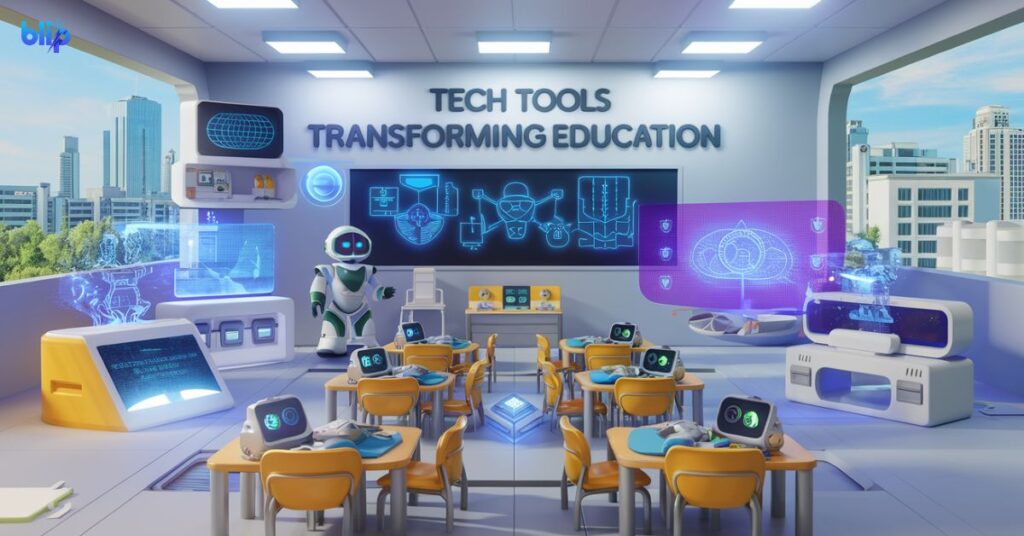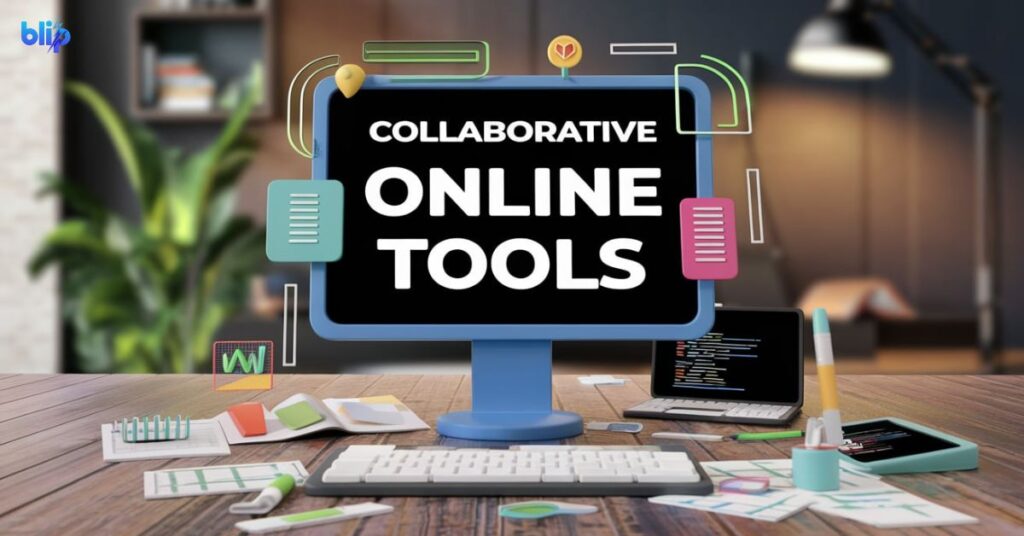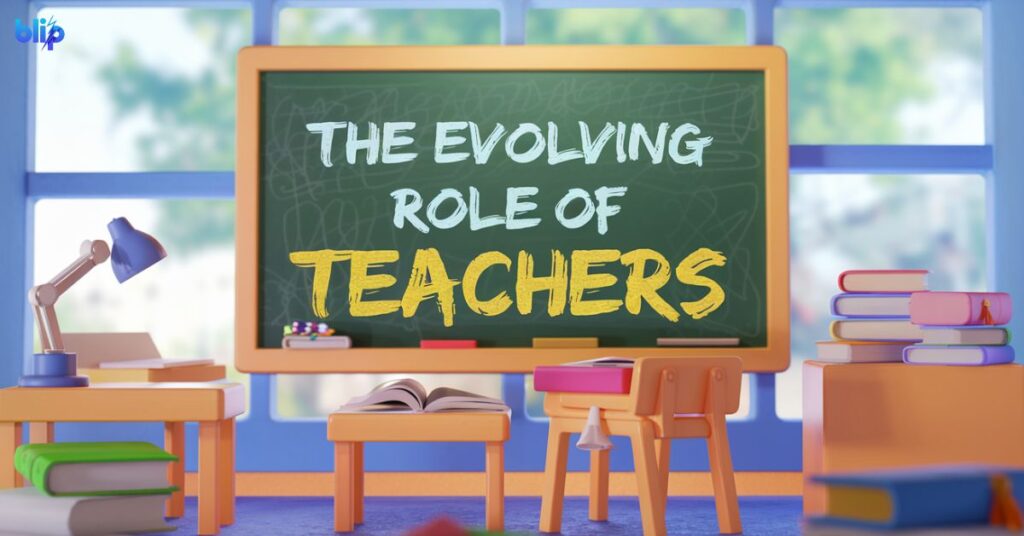Education loves all tech. It’s revolutionizing how we teach and learn in today’s fast-paced world. From interactive whiteboards to AI tutors, technology is reshaping our classrooms and learning experiences.
Curious about how Education Loves All Tech is changing the game? You’ve come to the right place. We’ll explore cutting-edge gadgets, smart systems, and innovative teaching methods that are transforming education.
In this article, we’ll dive deep into how Education Loves All Tech. We’ll examine modern classrooms, online learning platforms, and the role of artificial intelligence in education. Get ready to discover the exciting future of learning!
The Evolution of Educational Technology
Education loves all tech, and this love affair has been brewing for decades. It all started with the introduction of computers in classrooms during the 1980s. These machines changed the way teachers taught and students learned, opening up new possibilities for interactive learning.
The 1990s saw the rise of the internet, and Education Loves All Tech took on a whole new meaning. Suddenly, schools around the world were connected, and students could access information from anywhere. This global network transformed research and collaboration in education.
As we entered the new millennium, Education Loves All Tech embraced mobile devices. Smartphones and tablets made learning truly portable. Students could now carry entire libraries in their pockets, access educational apps on the go, and participate in online courses from anywhere with an internet connection.
Digital Classrooms
Education loves all tech, especially when it comes to modern classrooms. Gone are the days of dusty chalkboards and overhead projectors. Today’s classrooms are equipped with smart boards that make lessons more interactive and engaging. These digital marvels allow teachers to incorporate multimedia elements seamlessly into their lessons.
Students now use tablets instead of lugging around heavy textbooks. This shift not only saves their backs but also ensures they always have access to the most up-to-date information. Education loves all tech that makes learning more accessible and current.
Virtual and augmented reality are the latest stars in the Education Loves All Tech show. These technologies bring far-off places and abstract concepts to life right in the classroom. Imagine exploring the pyramids of Egypt or dissecting a virtual frog – all without leaving your desk!
Online Learning Platforms

Education loves all tech, and online learning platforms are a shining example of this affection. These digital hubs offer courses on virtually every topic imaginable. From academic subjects to professional skills, there’s something for everyone.
Popular platforms like Coursera, Khan Academy, and edX have partnered with top universities and experts worldwide. They offer high-quality courses, many of which are free or low-cost. Education loves all tech that democratizes learning and makes it accessible to all.
The flexibility of online learning is a game-changer. Students can learn at their own pace, on their schedule. Whether you’re a busy professional or a night owl, Education Loves All Tech platforms that adapt to your lifestyle.
AI in Education
Artificial Intelligence is the newest darling in the Education Loves All Tech saga. AI has the potential to personalize learning like never before. It can adapt to each student’s unique learning style, pace, and needs, providing a truly tailored educational experience.
AI tutors are available 24/7, ready to answer questions and provide explanations. They never tire, never lose patience, and can repeat lessons as many times as needed. This constant support ensures that no student is left behind.
For teachers, AI is a powerful ally. It can handle time-consuming tasks like grading multiple-choice tests and even essays. This frees up teachers to focus on what they do best – inspiring and guiding students. Education loves all tech that empowers both students and teachers.
Tech Tools Transforming Education

Education loves all tech tools that enhance the learning experience.
There are some game-changers:
- Smart boards for interactive, multimedia lessons
- Educational apps that make learning fun and engaging
- Online quizzes and assessments for instant feedback
- Virtual labs for safe, cost-effective experiments
- E-books and digital libraries for vast learning resources
Remote Learning: Lessons from the Pandemic
The COVID-19 pandemic accelerated the Education Loves All Tech trend. As schools worldwide closed their physical doors, digital platforms opened new ones. This unexpected shift brought both challenges and opportunities, reshaping our understanding of education.
Remote learning became the new norm, forcing educators and students to adapt quickly. Education loves all tech that enables continuity in learning, and during this time, various tools proved their worth. From video conferencing to digital assignment platforms, technology kept education going.
The pandemic highlighted the importance of digital literacy and flexibility in education. It showed that Education Loves All Tech isn’t just a catchphrase, but a necessary approach for future-proofing our learning systems. Let’s explore the key lessons learned during this unprecedented time.
Video Conferencing
Zoom, Google Meet, and other video platforms became the backbone of remote education overnight. Teachers quickly learned to navigate these new virtual spaces, recreating classroom environments online. Education loves all tech that bridges distances, and these tools did just that.
Students adapted to seeing their classmates and teachers through screens. They learned new etiquette for online interactions, like muting microphones and using chat functions. Despite initial challenges, many found that virtual classrooms offered unique benefits, such as recorded lessons for review.
The success of video conferencing in education proved that learning isn’t confined to physical spaces. Education loves all tech that expands the definition of a classroom. This experience has paved the way for more flexible, hybrid learning models in the future.
Digital Assignment Platforms
As schools went remote, homework and projects transitioned fully into the digital realm. Platforms like Google Classroom and Microsoft Teams became essential tools for managing the learning process. Education loves all tech that streamlines administrative tasks, allowing teachers to focus more on teaching.
These platforms made it easy to assign, submit, and grade work online. Students could access all their assignments in one place, submit their work digitally, and receive feedback quickly. Teachers could track progress more efficiently and provide timely interventions when needed.
The adoption of digital assignment platforms demonstrated that Education Loves All Tech enhances organization and communication. These tools not only facilitated remote learning but also introduced efficiencies that will likely continue to benefit education in the long term.
Virtual Field Trips and Guest Speakers
The internet brought the world to students’ homes during lockdowns. Virtual museum tours, online concerts, and guest lectures from experts worldwide became possible. Education loves all tech that expands horizons beyond classroom walls, and these virtual experiences did just that.
Students could explore the Louvre in Paris or listen to a NASA astronaut speak, all from their living rooms. These experiences enriched the curriculum and provided exposure to diverse perspectives and cultures. Teachers could incorporate these resources to make lessons more engaging and relevant.
The success of virtual field trips and guest speaker sessions showed that Education Loves All Tech broadens students’ worldviews. Even as schools reopen, these virtual experiences are likely to remain a valuable supplement to traditional in-person learning.
Collaborative Online Tools

Despite physical distancing, group projects and collaborative learning continued. Shared documents, virtual whiteboards, and chat apps kept teamwork alive in the digital space. Education loves all tech that fosters cooperation and collective problem-solving.
Students learned to collaborate in new ways, developing digital teamwork skills that will serve them well in the future. They discovered how to manage group projects remotely, divide tasks, and communicate effectively in online environments. These experiences mirror the realities of many modern workplaces.
The adoption of collaborative online tools demonstrated that Education Loves All Tech prepares students for the future of work. These digital collaboration skills are increasingly valuable in our interconnected world and will likely remain an important part of education moving forward.
New Digital Literacy Skills
Both students and teachers gained new tech skills during the pandemic. From troubleshooting connection issues to creating digital content, these competencies became essential. Education loves all tech that enhances digital literacy, preparing learners for an increasingly digital world.
Teachers learned to create engaging online lessons, use digital assessment tools, and manage virtual classrooms. Students developed skills in online research, digital presentation, and responsible internet use. These new competencies go beyond just using technology to truly leveraging it for learning.
The rapid acquisition of digital skills during this period showed that Education Loves All Tech empowers users. These newly developed digital literacy skills will continue to be valuable, supporting lifelong learning and adaptability in our technology-driven world.
Read this Blog: IoT Hidden Menu on Android
Challenges in EdTech Adoption
While Education Loves All Tech, the path isn’t always smooth. The digital divide is a significant challenge. Not all students have equal access to devices or reliable internet at home. This inequality can widen the education gap if not addressed.
Teachers need ongoing training to keep up with new technologies. It takes time and resources to learn new tools and integrate them effectively into lessons. Some educators feel overwhelmed by the constant changes in tech.
Privacy and data security are major concerns in the digital age. Schools must ensure that student information is protected. Education loves all tech, but it must prioritize student safety and data privacy.
The Future of EdTech
Education loves all tech, and the future looks incredibly exciting.
A glimpse of what’s to come:
| Technology | Potential Impact |
| AI Tutors | Personalized 24/7 learning support |
| VR Classrooms | Immersive, experiential learning |
| Brain-Computer Interfaces | Direct knowledge transfer |
| Holographic Teachers | Expert lectures from anywhere |
| Adaptive Textbooks | Content that adjusts to student needs |
Preparing Students for a Tech-Driven World
Education loves all tech because our world runs on it. Schools are adapting curricula to include essential tech skills. Coding classes are becoming as common as math and science. Students learn not just to use technology, but to create it.
Digital citizenship is another crucial area. Students must learn to navigate the online world responsibly and safely. This includes understanding privacy, recognizing fake news, and using social media wisely. Education loves all tech but also teaches how to use it ethically.
Soft skills remain important in the tech world. Creativity, critical thinking, and communication are still vital. Education loves all tech that enhances these skills, not replaces them.
The Evolving Role of Teachers

Education loves all tech, but teachers remain irreplaceable. Their role is evolving from information providers to learning facilitators. They guide students through the vast digital landscape, helping them navigate and make sense of it all.
Teachers use tech to create more engaging and interactive lessons. They can now reach students with different learning styles more effectively. Education loves all tech that helps teachers personalize their approach.
Professional development is key in this tech-driven era. Teachers are lifelong learners, constantly updating their skills. They attend workshops, take online courses, and collaborate with peers to stay current. Education loves all tech that supports teacher growth.
EdTech Success Stories
Education loves all tech that makes a real difference.
There are some inspiring examples:
- A rural school uses satellite internet to access advanced online courses
- An AI-powered app helps dyslexic students read more easily and confidently
- Medical students practice complex surgeries safely using virtual reality
- A 24/7 chatbot answers student questions, reducing teacher workload
- Gamified math programs boost engagement and scores for struggling students
Final Words
Education loves all tech that enhances learning and opens new possibilities. We’ve explored how technology transforms classrooms, enables online learning, and personalizes education through AI. The future of education is digital, interactive, and more accessible than ever.
The fusion of technology and education will only deepen as we move forward. AI, VR, and other emerging technologies will play increasingly significant roles. the human element – great teachers and peer interaction – remains crucial.
Education loves all tech, but it’s not about the gadgets. It’s about using technology to achieve better learning outcomes. As we embrace these changes, we prepare students for a world where lifelong learning and adaptability are key to success.
Frequently Asked Questions
How is AI changing education?
AI personalizes learning, provides 24/7 tutoring, and helps with grading and administrative tasks.
What are some popular online learning platforms?
Coursera, Khan Academy, and edX are widely used for various subjects and skills.
How did the COVID-19 pandemic impact education technology?
It accelerated the adoption of remote learning tools and digital education platforms.
What skills do students need for a tech-driven future?
Coding, digital literacy, critical thinking, and responsible tech use are crucial.
How can schools address the digital divide?
By providing devices, internet access, and tech training to all students equitably.

Ayekiz is a skilled technology author on TechsBlip, committed to providing informative and engaging content that simplifies complex tech concepts. With a passion for promoting digital literacy and online safety, Ayekiz’s writing offers expert analysis, practical tips, and evidence-based information to empower readers in the digital age.

